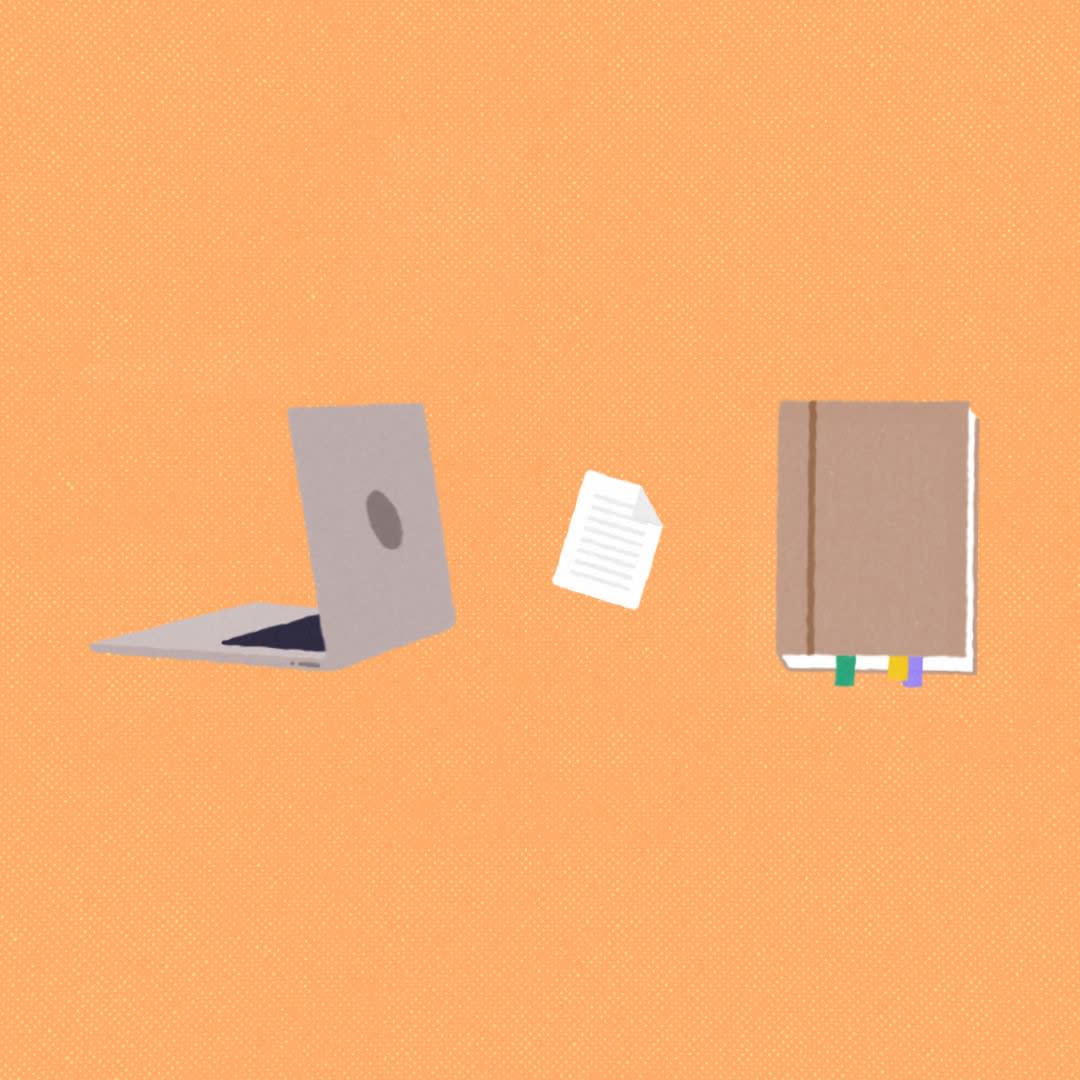Paper vs. Laptop: Is it better to write or type your notes in class?

How you prefer to take notes is very personal. Some folks swear by the tactile nature of pen and paper — others feel they’d never be able to keep up without the speed of a keyboard. But is one actually better than the other?
It’s time to end the debate once and for all. The good news is, from a basic factual recall perspective, your note-taking style doesn’t seem to matter much. In a 2014 study, Pam Mueller and Daniel Oppenheimer had a group of Princeton undergraduate students view a recorded lecture while taking typed or longhand notes. The students were then quizzed on the material, and no significant difference was found in how well they remembered the information.
Related: How to talk to your professor about a bad grade
That said, there are some things to consider when determining which note-taking style is right for you or is right for any given class. We asked Oppenheimer what he took away from the study and how students can best utilize each method.
Understand what each style has to offer
While no note-taking style reigns supreme, they do each offer unique benefits. “It isn't that one is better, but rather that each is better for different purposes,” says Oppenheimer.
For instance, taking notes by hand encourages you to summarize information in your own words, since your hand can’t move fast enough to jot down every single detail. Having to distill ideas like this may help them sink in more. “This act of summarizing is the sort of deep processing that facilitates learning,” says Oppenheimer. In the original study, while there was relatively little difference in factual recall between the two note-taking styles, students taking notes by hand scored much better in conceptual understanding of ideas. Plus, writing by hand has been shown to boost creativity and memory.
Working on paper can also make it easier if you need to jot down more than text alone. “For content that requires drawing — graphs, unusual symbols, spatial relationships — it can be a lot more effective to write on paper than to use word processing,” explains Oppenheimer.
Related: 7 affordable ways to get your college degree
Typing your notes, meanwhile, offers speed, allowing you to more easily follow along with a professor that moves a mile a minute or captures specific facts and figures in more information-dense classes. Typed notes may improve accuracy. Not only that, but you can quickly search and navigate your notes, which comes in handy when you’re hunting down something specific during your study sesh. Moreover, a more recent replication of Oppenheimer’s original study by other researchers found no significant difference in factual or conceptual performance between the two approaches.
Choose your approach based on preference and context
So what does all this conflicting research tell us? Even Oppenheimer admits that “there is so much that we don’t know yet,” and contextual factors like how experienced the students were with digital devices, how motivated they were to learn and what the learning environment was like could impact results.
With all that in mind, it’s not about saying one style of note-taking should always be used. Instead, Oppenheimer says, “students need to think about the benefits and drawbacks of different media and try to match that with the context at hand.”
Walking into a diagram-heavy class like math or econ or a subject where summarizing ideas is important like literature? Consider opting for pen and paper. For subjects like history that involve specific dates, names, quotes, and events, you might choose to type notes instead. Or, if you’re taking notes for a friend who missed class, the ability to catch verbatim information with typing could be better.
It’s also important to take your own strengths and weaknesses into account. Is your handwriting nearly illegible? You’ll probably have an easier time reading typed notes. Are you unable to avoid all the distractions of the internet when trying to take notes on your laptop? Writing may be the smarter path to keep you focused.
Related: Is training yourself to wake up earlier worth it — or even possible?
If you switch between the two methods for different situations, make sure to stay organized. For example, maybe you write out all your notes for biology and type your notes in your business class. Another option is to use an app like Evernote that lets you digitize handwritten notes, so you can keep everything in one place.
Make sure your tech isn’t controlling you
Of course, so much has changed since 2014, and suggesting you go back to handwriting notes may sound like we’re suggesting you go back to the Stone Age. But Oppenheimer urges students: “Be deliberate in choosing technology. So often we default into whatever the norm is without thinking about whether that norm is right for us in our personal situation.”
Just because every student in your class chooses to use a laptop doesn’t mean you should do the same. Make your decision based on context, your strengths, and your note-taking goals — and you’ll be well on your way to studying success.
View the original article at Chegg Life and signup for the Chegg Life Newsletter
Related...

